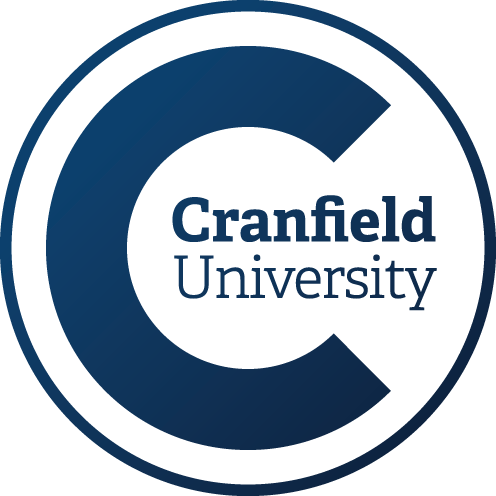Real-World Readiness in Propulsion Engineering: Thermal Power and Propulsion MSc
03/12/2024

In our recent conversation with Dr. Uyioghosa Igie, Programme Director for the Thermal Power and Propulsion MSc , we delved into what makes the course an exciting path for students interested in gas turbine engineering and propulsion systems. Dr. Igie shared his journey into the field, the core focus areas of the MSc and the hands-on learning experiences that set it apart – read it here. As we continued our conversation with Dr. Uyioghosa Igie, he shared how the course helps students transition smoothly from academia to industry, as well as the unique benefits of its two intake options. With its strong focus on applied learning and industry readiness, this MSc offers a clear path for aspiring power and propulsion engineers.
Preparing Students for the Real World: A Bridge from Classroom to Industry
One of the most valuable aspects of our Thermal Power and Propulsion MSc programme is how it prepares students for their professional careers. Dr. Igie noted that many Cranfield graduates move into specialised roles in industries like aerospace, aviation, marine energy, and oil and gas—areas that all share a common need for decarbonisation and sustainable energy solutions. The applied nature of the coursework and thesis projects, which focus on real-world industry challenges, gives students a head start when it comes to entering the workforce.
“At times, our graduates return to Cranfield as industry partners,” Dr. Igie said. This ongoing relationship with alumni in industry provides insight into how well the programme prepares its students and allows current students to see the transition first-hand. With a curriculum grounded in real-world issues, graduates often find they’re already well-equipped to make meaningful contributions from day one on the job.
Cutting-Edge Technology and Research Opportunities
Dr. Igie also highlighted some of the innovative projects and technologies that students engage with during their time at Cranfield. For instance, students might work on experimental rigs that burn hydrogen efficiently, aiming to minimize NOx emissions—a significant challenge in decarbonising power and propulsion systems. They also explore digital twin technology and machine learning for fault detection in gas turbines, as well as computational fluid dynamics for compressor designs and jet engine intakes.
“The industry connections and real-time projects are a huge benefit to students, as they get to work on cutting-edge issues that are actively shaping the future of the field,” Dr. Igie shared. These advanced research opportunities allow students to gain first-hand experience in addressing the challenges of a rapidly evolving industry.
Flexible Start Dates: Two Intakes
A unique feature of our Thermal Power and Propulsion MSc is that students have the option to start in either September or March. While the course content remains the same, each intake has its own advantages. Dr. Igie explained that the March cohort tends to be smaller, meaning students may receive more individualised attention and, potentially, a greater chance of securing bursaries.
“The programme structure and support are consistent across both intakes, so it’s really a matter of timing and preference,” Dr. Igie confirmed. Whether students choose the March or September intake, they’ll benefit from the same comprehensive curriculum and industry-linked projects, allowing them to build a strong technical foundation and hands-on expertise.
Looking Ahead: A Promising Future for Cranfield Graduates
Dr. Igie expressed excitement about the future of power and propulsion engineering, emphasising the urgent need for talented graduates to address sustainability challenges in the industry. “Gas turbine engineering cuts across air, land, and sea applications, with a huge need for decarbonisation,” he noted. As industries face the need to balance efficiency with emissions reduction, Cranfield graduates are well-positioned to make an impact.
“We need talented and enthusiastic minds to tackle these complex problems, where solutions often require navigating conflicting requirements,” Dr. Igie said. With Cranfield’s strong industry partnerships and cutting-edge facilities, the MSc programme aims to produce graduates who are ready to contribute to a more sustainable future, and presents an exceptional course for those eager to work at the forefront of power and propulsion technology.
Listen to the full interview
Categories & Tags:
Leave a comment on this post:
You might also like…
How do I write a secondary reference … in the NLM style?
Secondary referencing is used when you’re reading a work which includes a quotation from another author, and you – the researcher – can’t obtain the original source. We always advise, where possible, to try to ...
Reaching new heights: How a Global Excellence Scholarship fuelled my aerospace dreams
Leaving my home in India to pursue an MSc in Aerospace Dynamics at Cranfield University was a leap of faith. Hi, I’m Oliza Kachroo and as an international student, the transition ...
How do I reference…when delivering a presentation?
Just as you cite and reference sources in written work, you should also acknowledge the sources you use or quote in oral presentations. Citing your sources in presentations provides your audience with information about the ...
How do I reference a blog post… in the NLM style?
Whilst blog posts do not fall into the scholarly material category, they can be useful for providing personal insights into a particular area. For example, there may be a high-profile member of an industry who ...
From nature walks to neural networks: My journey in Applied AI at Cranfield
Hi, I’m Ebru K and choosing a postgraduate degree is about more than just picking a subject; it’s about choosing where your future begins. As an international student from Turkey, I ...
Leading With Heart: My Journey as Cranfield Student Association President by Summer Yan
When I first arrived at Cranfield, I had no idea that one year later I would be standing at the heart of our student community, serving as President of the Cranfield Student Association (CSA). ...







